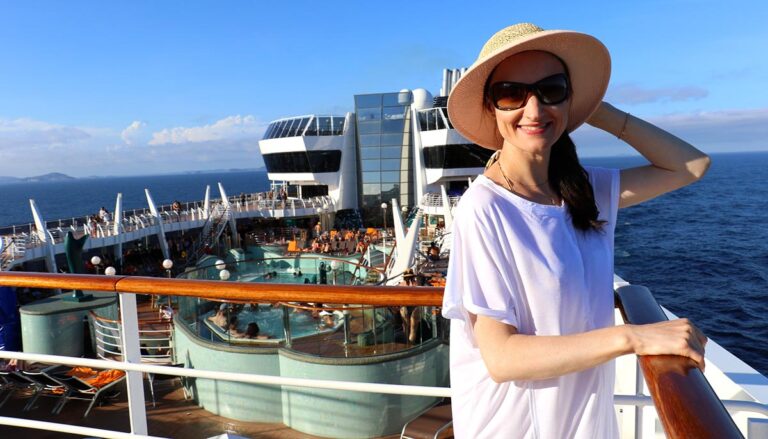Unless you are a current or former cruise ship employee, you may be unaware of the secret codes they use to describe passengers. Luckily, some insiders are revealing these terms – and what crewmembers really think.
What do cruise ship crews really think about passengers?
According to one former officer who posted some insider information on Quora, most cruise ship crewmembers try to judge each guest individually rather than as a whole.
“I’ve met very few guests that I would consider… problematic,” said James Abbgy, who identifies himself as a former Shipboard IT at Royal Caribbean (2016–2021). “Most of them either had a valid complaint that they blew out of proportion, or had spent a lot of money and felt entitled to complain about everything from the weather to the angle of the napkins. Other than those rare occasions, guests are one of the best parts of the job.”
“I’m sure I’d have more negative interactions if I had to work at the service desk, or as an entertainer,” Abbgy added.
Cruise ship crews use secret codes to keep passengers in the dark
Members of cruise ships have developed their own secret sayings and codewords that they used to communicate amongst one another while keeping passengers in the dark for a variety of reasons, including dealing with emergencies and avoiding causing a mass panic.
Because cruise ships travel all around the world, a vessel may employ people from over 40 countries, resulting in industry slang that combines words and sayings from several different languages, according to Business Insider, which compiled a dictionary of cruise ship language based on interviews with cruise workers, previous reporting, and industry blogs. Insider pointed out that alert codes and cruise ship slang can often vary by cruise line.
A sampling of cruise ship slang
Babaloo/Babalu: Someone who is a fool or idiot.
Mamagayo: A lazy coworker or someone pretending to work and shirking their job responsibilities.
Cone and Coning: Avoiding passengers, as if swerving around traffic cones.
PVI, Protein Spill, and Purell: PVI stands for “public vomit incidents” and is a way for workers to orchestrate cleanup duty.
Winnie: Stands for “Winnie the Pooh,” shorthand on Disney Cruises for saying a passenger has pooped in the pool.
Mufasa: Taken from the Disney film The Lion King, it refers to a parent who is separated from their child.
Alpha, Star Code, Code Mike: Alert code for medical emergency.
Bravo, Alpha Team, Red Party: Alert code to indicate a fire.
Code Oscar or Mr. Mob: A man overboard situation (MOB).
Echo: Means the ship is drifting or a risk of high winds or collision.
Slop chest: A tiny convenience store found in the crew-only section that sells essential items to employees.





